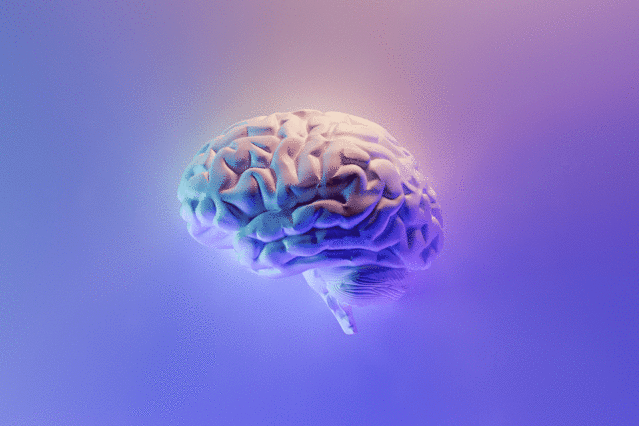Stress
A Brain Changer: How Stress Shapes Cognition and Memory
Stress and strain can change the brain and lead to everyday forgetfulness.
Posted February 18, 2022 Reviewed by Devon Frye
Key points
- "Good stress" is processed adaptively, but "bad stress" can have lasting effects on brain structure, function, and plasticity that impact memory.
- Although stress reactivity differs between us, even minor stress-induced elevations in glucocorticoids can make someone forgetful.
- Forgetfulness is not just a side effect of illness or busyness; stress can disrupt our physiological equilibrium central to memory regulation.

Some of us have visceral responses to stress—we struggle to focus; our recall is… not great; we feel disorganised, overwhelmed, and exhausted; we can’t sleep; our head hurts, our neck aches; we’re tearful; and we may even feel like we're on the brink of a meltdown. What does this stress do to the brain, or beneath the skin? Here, we explore the neural mechanisms that underlie how stress and strain shape the brain and its impact on our memory.
The Good, the Bad, and the Ugly
Stress triggers an evolutionary-based, psychobiological response to the precarious environment we find ourselves in on a day-to-day basis. But that is not to say that we cannot experience eustress (more commonly known as "good stress").
Good stress can elicit excitement—it can be motivating, even performance-enhancing. It can propel us to greater heights during exams, interviews, and speeches. Our pulse hastens, our heart races, our hormones surge—in other words, we feel alive.
Alas, eustress tends to be short-lived. Without it, we can feel listless, rudderless, or just plain unhappy. Good stress is, thus, key to vitality.
But bad stress often creeps up on you like a stranger in the night. It can be chronic in nature or acute and intense. While the healthy brain processes good stress adaptively, bad stress can lead to maladaptive processing with lasting effects on brain structure, function, and plasticity, with changes seen also to neuron shape, connectivity, and cell count. Together, these changes impede cognitive processing (Bremner, 1999).
More Than a Side Effect
Whether on a social or occupational basis, stress can overwhelm cognitive load and evoke aversive neural reactions that disrupt our physiological equilibrium—with knock-on effects seen to our mental well-being and overall health. Stress increases our vulnerability to a range of well-known (and more obscure) physical and mental health conditions—including systemic lupus erythematosus (Morand, 2018), Cushing’s disease (Orsini et al., 2021), cardiovascular disease (Kivimäki & Steptoe, 2018), depression (Hamilton et al., 2021), and psychosis (Dykxhoorn et al., 2020), to name a few.
But what of memory? Deficits in declarative and non-declarative memory (i.e., recall of events and facts vs. conditioning and skill learning), in addition to cognitive difficulty and issues with overall executive function (e.g., flexible thinking and self-control) often coincide with conditions such as these. While they are typically passed off as inconvenient side-effects, there is much more to it than that.
Where Memories Are Made
The hippocampus, amygdala, and prefrontal cortex are crucial components of brain circuitry involved in learning and memory. The hippocampus, however, is the anatomic basis for memory, responsible for memory encoding, consolidation, and retrieval (Lindau et al., 2016).
Although it does not operate in isolation, the hippocampus is the temporal lobe brain structure most sensitive to stress (Calcia et al., 2016). Hippocampal vulnerability stems from the incitement of glucocorticoids and neurotransmitters that are elevated in the stress response (McEwen, 2007). Even in fit and healthy people, stress can elevate glucocorticoids. Soldiers tested at wartime, for example, had excessive levels of urinary cortisol, but notable reductions in cortisol were detected when they were no longer in immediate threat (Howard et al., 1955).
Stress Shrinks the Brain
Stress-induced hippocampal atrophy (aka shrinkage) has been associated with spatial and working memory deficits in both humans and animals (Conrad, 2008). This type of shrinkage occurs through inhibitory effects of prolonged stress exposure on the hypothalamus-pituitary-adrenal (HPA) axis, which causes glucocorticoid hypersecretion and the modulation of excitatory neurotransmitters (McEwenn, 2007).
Chronically elevated glucocorticoids and excitatory amino acid neurotransmitters can permanently alter brain architecture. This level of exposure can cause a number of neuronal changes, from reduced dendritic branching, synaptic terminal structural alterations, neuron death, and neuronal regeneration inhibition in the hippocampus (Bremner, 1999).
Dependent on the brain target, dendritic expansion-retraction and synapse density increase-decrease can occur, along with changes to neurogenesis (the process by which new neurons are formed in the brain) in the dentate gyrus, the region in the brain where all sensory modalities merge to form memories and facilitate cognition (McEwen et al., 2015).
Clinical derangements manifest in reduced cognitive performance and fragmented working and spatial memory (Bremner, 1999).
Why You Can't Remember When You're Stressed
So, we see the relevance of glucocorticoids in memory by way of alterations to the hippocampus. It explains why we can’t remember as easily when we're stressed.
People with Cushing’s Disease, for instance, present with persistently high cortisol levels, indicating consistent deficits in verbal declarative memory. This was additionally related to reductions in hippocampal volume (aka atrophy) through magnetic resonance imagining (MRI; Starkman et al., 1992). Similarly, prescribed long-term doses of glucocorticoids, such as prednisone, have been found to impair verbal declarative memory in people without neurological concerns (Keenan et al., 1995).
But glucocorticoids elevations do not have to be extreme to make us forget. Even minor stress-induced cortical elevations and cortisol at a therapeutic dose have been shown to exhaust our ability to remember (Kirschbaum et al., 1996).
The Way You See It
Stress reactivity differs between individuals because of individual perception, capacity, and resilience. Sometimes, then, it’s just the way we see it.
Take social interactions, for instance—an introvert may find a particular interaction highly stressful, while an extravert may find it exhilarating. Likewise, remote working may be brilliant for the introvert, but horrendous for the extravert. Some people also have a higher stress threshold than others, which is why some break down and others thrive under the same conditions. Thus, we see idiosyncratic responses to stress.
Ultimately, stress is unavoidable, and some things we will forget. The trick is in minimising unnecessary stress exposure and managing—as best we can—the way that we see it. That is, leveraging emotional regulation to enhance memory and overall executive function. This will lessen the damage done to the brain, with huge impacts seen in memory.
References
Bremner, J. D. (1999). Does Stress Damage the Brain? BIOL PSYCHIATRY, 9.
Calcia, M. A., Bonsall, D. R., Bloomfield, P. S., Selvaraj, S., Barichello, T., & Howes, O. D. (2016). Stress and neuroinflammation: A systematic review of the effects of stress on microglia and the implications for mental illness. Psychopharmacology, 233(9), 1637–1650.
Conrad, C. (2008). Chronic Stress-induced Hippocampal Vulnerability: The Glucocorticoid Vulnerability Hypothesis.
Dykxhoorn, J., Lewis, G., Hollander, A.-C., Kirkbride, J. B., & Dalman, C. (2020). Association of neighbourhood migrant density and risk of non-affective psychosis: A national, longitudinal cohort study. The Lancet Psychiatry, 7(4), 327–336.
Hamilton, O. S., Cadar, D., & Steptoe, A. (2021). Systemic inflammation and emotional responses during the COVID-19 pandemic. Translational Psychiatry, 11(1), 1–7.
Howard, J. M., Olney, J. M., Frawley, J. P., Peterson, R. E., Smith, L. H., Davis, J. H., Guerra, S., & Dibrell, W. H. (1955). Studies of Adrenal Function in Combat and Wounded Soldiers. Annals of Surgery, 141(3), 314–320.
Keenan, P. A., Jacobson, M. W., Soleymani, R. M., & Newcomer, J. W. (1995). Commonly Used Therapeutic Doses of Glucocorticoids Impair Explicit Memory. Annals of the New York Academy of Sciences, 761(1), 400–402.
Kirschbaum, C., Wolf, O. T., May, M., Wippich, W., & Hellhammer, D. H. (1996). Stress- and treatment-induced elevations of cortisol levels associated with impaired declarative memory in healthy adults. Life Sciences, 58(17), 1475–1483.
Kivimäki, M., & Steptoe, A. (2018). Effects of stress on the development and progression of cardiovascular disease. Nature Reviews Cardiology, 15(4), 215–229.
Lindau, M., Almkvist, O., & Mohammed, A. H. (2016). Effects of Stress on Learning and Memory. In Stress: Concepts, Cognition, Emotion, and Behavior (153–160). Elsevier.
McEwen, B. S. (2007). Physiology and Neurobiology of Stress and Adaptation: Central Role of the Brain. Physiological Reviews,87(3), 873–904.
McEwen, B. S., Bowles, N. P., Gray, J. D., Hill, M. N., Hunter, R. G., Karatsoreos, I. N., & Nasca, C. (2015). Mechanisms of stress in the brain. Nature Neuroscience, 18(10), 1353–1363.
Morand, E. F. (2018). Stress and the onset of SLE. Nature Reviews Rheumatology, 14(3), 127–128.
Orsini, H., Castellano, V. B. D., Kokubun, H. S., Lopes, K. A. R., & Velho, N. M. R. C. (2021). Stress as cause of signs and symptoms of pseudo-Cushing’s syndrome in buffy-tufted marmosets (Callithrix aurita). Journal of Medical Primatology, 50(2), 149–153.
Starkman, M. N., Gebarski, S. S., Berent, S., & Schteingart, D. E. (1992). Hippocampal formation volume, memory dysfunction, and cortisol levels in patients with Cushing’s syndrome. Biological Psychiatry, 32(9), 756–765.




